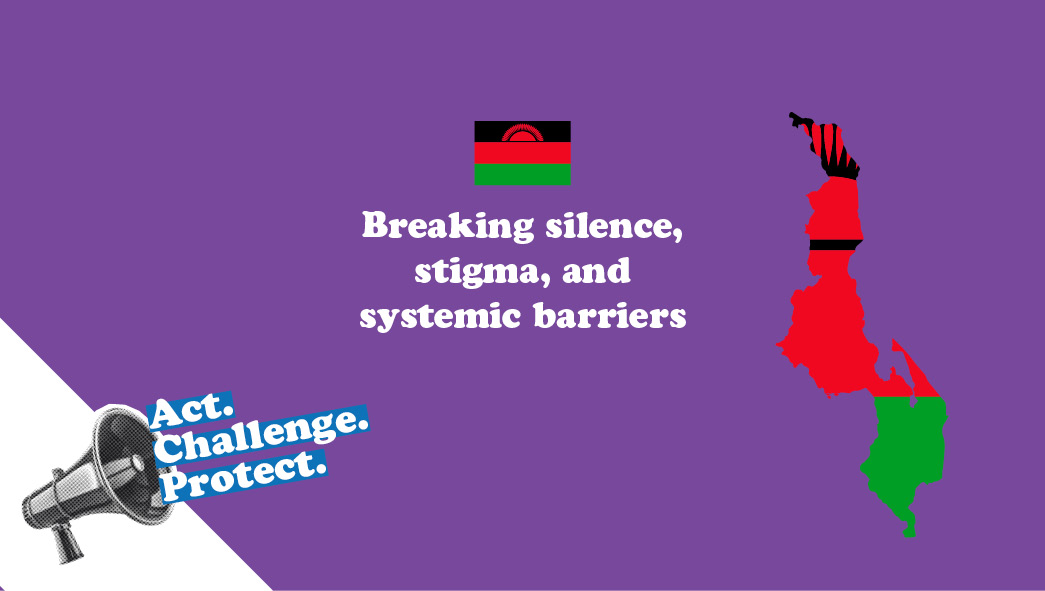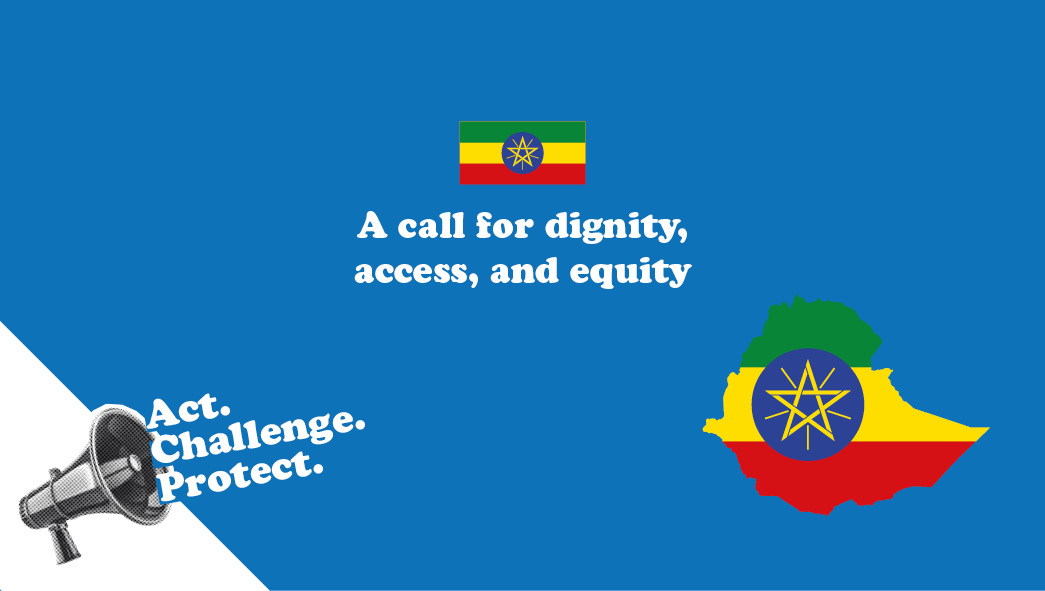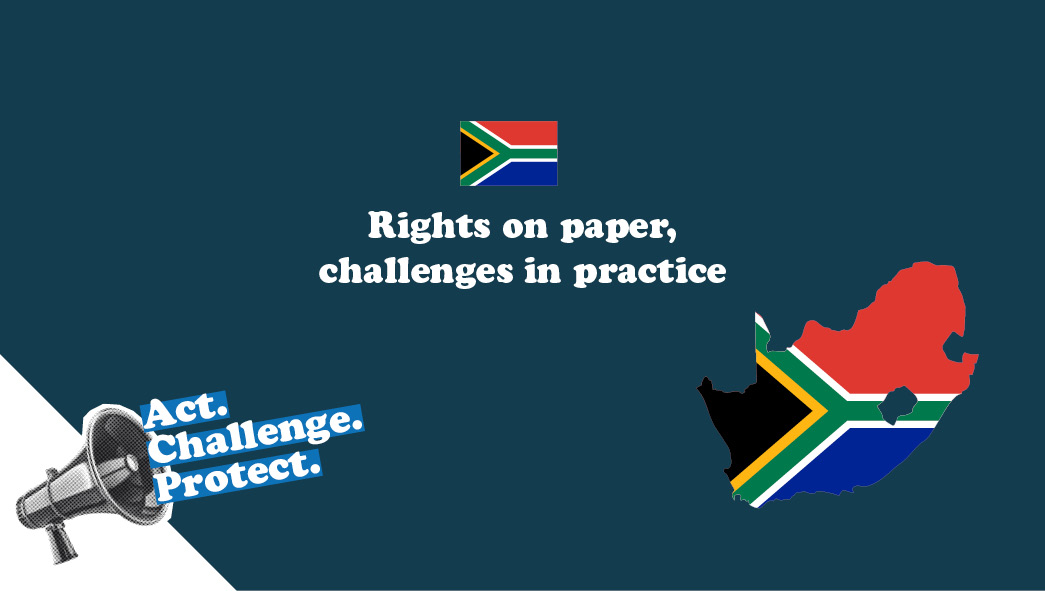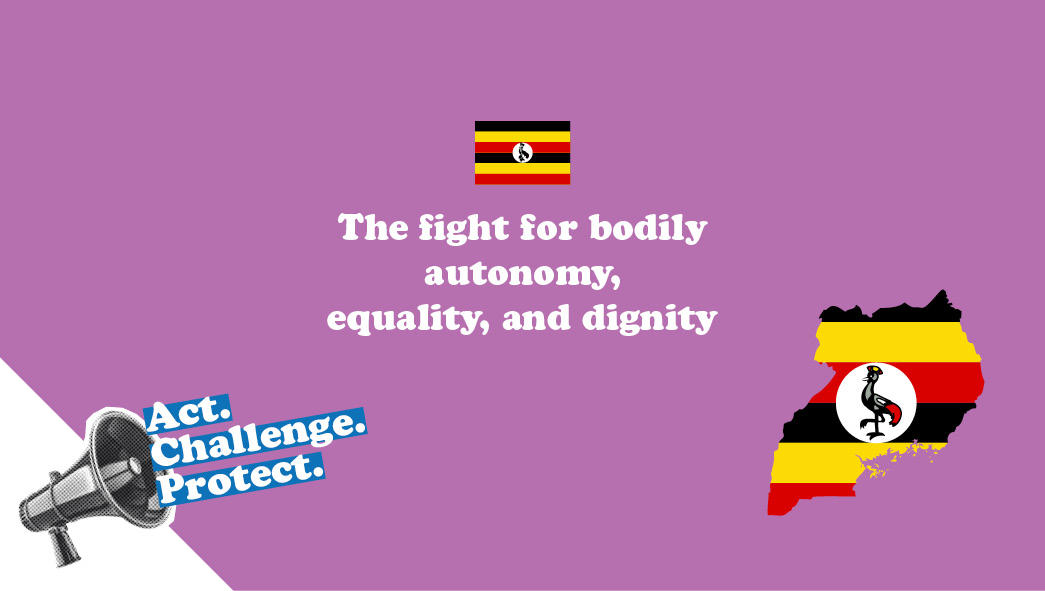SRHR in Malawi
Breaking silence, stigma, and systemic barriers
In Malawi, many people – especially young women, girls, and persons living with disabilities – face challenges in accessing sexual and reproductive health and rights (SRHR). Issues like unsafe abortions, early pregnancies, and restrictive laws put lives at risk. While community advocacy and youth-led activism are making progress, structural and social barriers remain.
The #ActForSRHR campaign calls on Malawian communities, leaders, and institutions to Act. Challenge. Protect. Because SRHR is not a privilege—it’s a right for every BODY.
Top 6 SRHR Challenges in Malawi
- Challenges in Comprehensive Sexuality Education (CSE): CSE in Malawi is delivered through Life Skills Education in schools and various out-of-school programs. However, there’s a lack of consistency in content and delivery, leading to concerns about its effectiveness and comprehensiveness. Cultural and religious beliefs further complicate implementation, causing resistance and variations in the information provided. (Source)
- Unsafe abortions: Over 141 000 unsafe abortions occur annually, contributing to 6–18% of maternal deaths. (Source)
- Maternal deaths among young girls: Girls aged 10–19 account for more than 29% of maternal deaths. (Source)
- Restrictive abortion laws: Abortion is only legal to save a woman’s life; women seeking abortion can face up to 7 years in prison. (Source)
- Discrimination in healthcare: Unmarried or young women are often denied services by healthcare providers. (Source)
- Barriers for persons with disabilities: People with disabilities face discrimination when accessing reproductive healthcare. (Source)
Sexual Health
The right to safe, respectful, and pleasurable sexual experiences.
Misinformation and discriminatory attitudes among healthcare providers limit access to accurate information and safe care, especially for young women and persons with disabilities.
What’s needed:
- SRHR education that includes persons with disabilities.
- Youth-friendly clinics in both rural and urban areas.
- Training for healthcare workers to reduce stigma.
Reproductive Health
Access to contraception, maternal care, safe abortion, and fertility support.
Malawi has one of the highest rates of unsafe abortion globally. Despite efforts for legal reform, many women are unaware of their rights or fear seeking care.
Did you know?
- Over 141 000 abortions occurred in 2015 – most were unsafe. (Source)
- The fatality rate for post-abortion care is 387 deaths per 100 000 procedures. (Source)
What’s needed:
- Legal reform to allow safe abortion beyond life-threatening emergencies.
- Expanded access to post-abortion care. (Source)
- Clear public information on rights and available services.
Sexual Rights
The right to express one’s sexuality and gender identity without fear.
Same-sex relationships are criminalised in Malawi. (Source)
LGBTQI+ individuals face violence, exclusion from healthcare, and lack of legal protection.
What’s needed:
- Descriminalisation of same-sex relationships.
- Healthcare access for LGBTQI+ individuals without fear or shame.
- Public campaigns to promote inclusion and dignity.
- The right to freely express identity, make decisions about one’s body, and live without coercion or control.
Reproductive Rights
The freedom to decide if, when, and how to have children.
Early marriage, poverty, and misinformation limit reproductive choices, especially for girls and women in rural areas.
What’s needed:
- End child marriage and protect girls’ rights over their bodies.
- Ensure access to contraception for all, regardless of marital status.
- Support community educators in challenging harmful myths.
Enabling Environment
Systems and structures that support SRHR for all.
Religious opposition and political hesitation have delayed progress on law reform. However, momentum is growing, with women, youth, and even religious leaders advocating for change.
What’s needed:
- Political commitment to pass the Termination of Pregnancy Bill.
- Increased funding for SRHR in national and district health budgets.
- More training and oversight for healthcare providers.
Myths and facts in Malawi
Myth: Only married women should use contraception.
Fact: Everyone has the right to plan their pregnancies.
Myth: People with disabilities shouldn’t have children.
Fact: All people have the right to parenthood if they choose.
Myth: Abortion is illegal in every case.
Fact: It is legal to save a woman’s life—but many don’t know this or fear seeking care.

Voices from Malawi
“I was called so many animal names [and was told] I would give birth to a baby that would look like an animal.”
— Onesta Chidyela, woman with a disability facing pregnancy stigma (Source)
“I felt hurt, ashamed, and confused deep inside. I knew I didn’t need to change my body to fit anyone’s expectations. I believed, and still believe, that I was created perfectly, just as I am.”
— Jacqueline Jijide, youth champion (Source)
“I’ve seen women struggling; I’ve seen them suffering and I feel for them.”
— Rev. Cliff Nyekanyeka, religious leader advocating for abortion law reform (Source)
How you can take action in Malawi
✅ Share your story using #ActForSRHR
✅ Support organisations pushing for the Termination of Pregnancy Bill
✅ Challenge harmful norms in your school, church, or clinic
✅ Amplify trusted information and protect those speaking out




